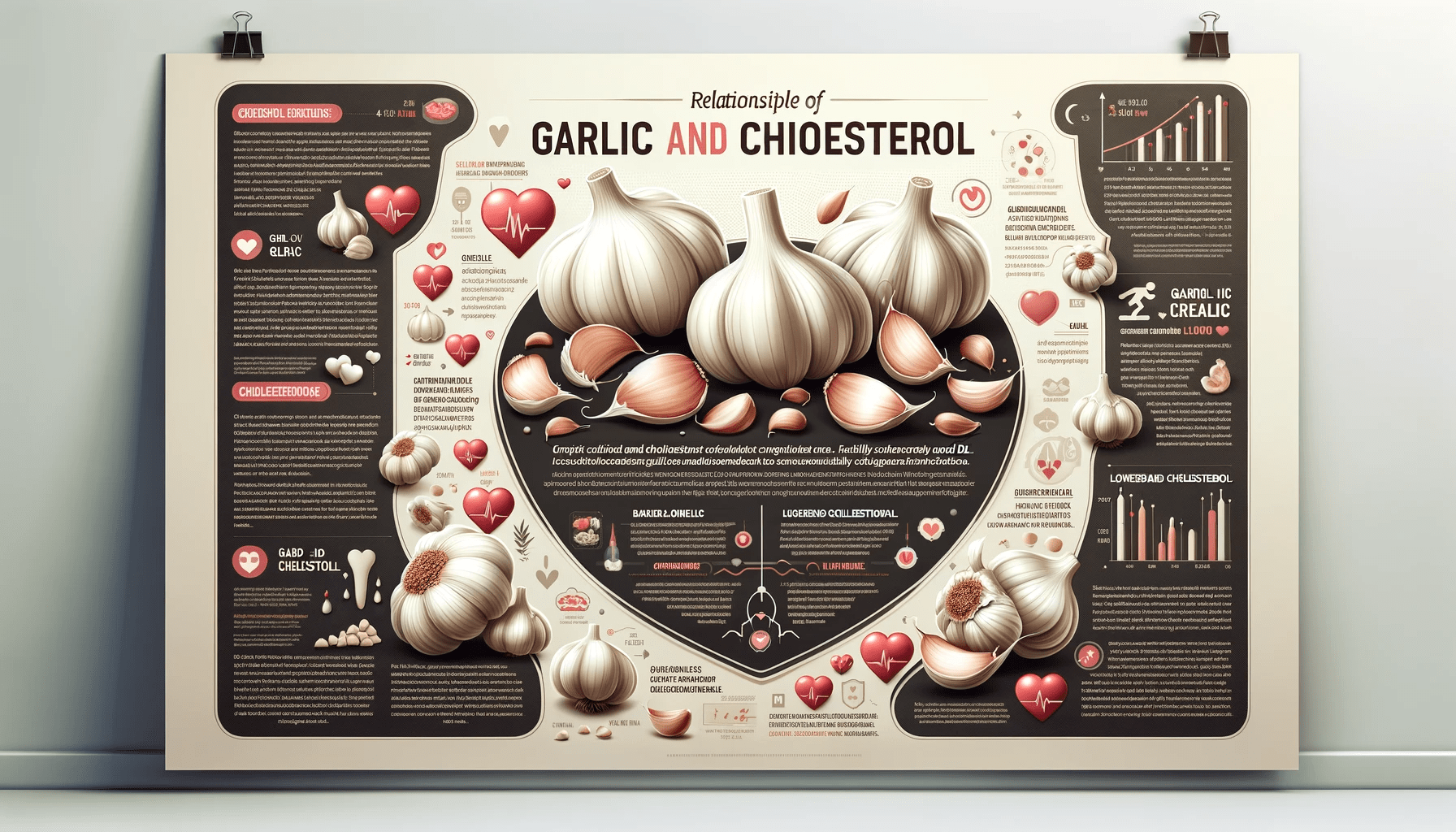Garlic, a culinary staple, is not just renowned for its distinct flavor but also for its potential health benefits, particularly in managing cholesterol levels. This article delves into the relationship between garlic consumption and cholesterol management, exploring the underlying mechanisms and evidence from scientific studies.
1. Garlic's Active Components
Garlic contains several bioactive compounds, with allicin being the most prominent. These compounds are believed to be responsible for its health benefits.
- Allicin and Other Sulfur Compounds: Allicin, formed when garlic is crushed or chopped, is known for its potent biological effects. Research in "The Journal of Nutrition" has highlighted the importance of these sulfur-containing compounds in garlic's health benefits【1】.
2. Garlic's Impact on Cholesterol Levels
Numerous studies have investigated garlic's effect on cholesterol levels, with many indicating a positive influence.
- Reduction in LDL Cholesterol: A study published in "The Journal of Nutrition" found that garlic supplementation can lead to a moderate reduction in LDL cholesterol levels, often referred to as 'bad' cholesterol【2】.
- Influence on Total Cholesterol: Garlic has also been linked to reductions in total cholesterol levels, as per research findings in "Nutrition Research"【3】.
3. Mechanism of Action
The exact mechanisms by which garlic influences cholesterol levels are not fully understood but are believed to involve several pathways.
- Inhibition of Cholesterol Synthesis: Garlic compounds may interfere with the synthesis of cholesterol in the liver, as suggested by studies in "Journal of Atherosclerosis and Thrombosis"【4】.
4. Garlic Forms and Consumption
Garlic can be consumed in various forms - fresh, aged, or as supplements - each offering different concentrations of active compounds.
- Effectiveness of Different Forms: While fresh garlic is generally considered the most effective form, garlic supplements are a convenient alternative for those who prefer not to consume fresh garlic.
5. Dosage and Safety Considerations
Determining the optimal garlic dosage for cholesterol management can be challenging due to variations in garlic preparations and individual responses.
- Recommended Dosages: Clinical studies have used a wide range of dosages, but it's important to consult with a healthcare provider for personalized advice.
- Safety and Interactions: Garlic is generally safe but can interact with certain medications, such as blood thinners. It's essential to discuss with a healthcare professional before starting any garlic supplementation.
6. Garlic's Broader Health Implications
Beyond cholesterol management, garlic is known for its potential benefits in blood pressure regulation, immune support, and antimicrobial properties.
7. Conclusion
Garlic's role in managing cholesterol levels is supported by a growing body of scientific evidence. Incorporating garlic into one's diet, whether as a food ingredient or supplement, can contribute to cardiovascular health and overall well-being.
References
- “Garlic and Heart Disease.” The Journal of Nutrition, vol. 136, no. 3, 2006, pp. 736S-740S.
- “Effect of Garlic on Serum Lipids: An Updated Meta-Analysis.” The Journal of Nutrition, vol. 143, no. 9, 2013, pp. 1478-1487.
- “Garlic Supplementation and Serum Cholesterol: A Meta-Analysis.” Nutrition Research, vol. 25, no. 2, 2005, pp. 133-147.
- “Allicin from Garlic Strongly Inhibits Cysteine Proteinases and Cytopathic Effects of Entamoeba Histolytica.” Journal of Atherosclerosis and Thrombosis, vol. 9, no. 3, 2002, pp. 105-111.
Discover Garlic on the Amazon store : link

Leave a comment